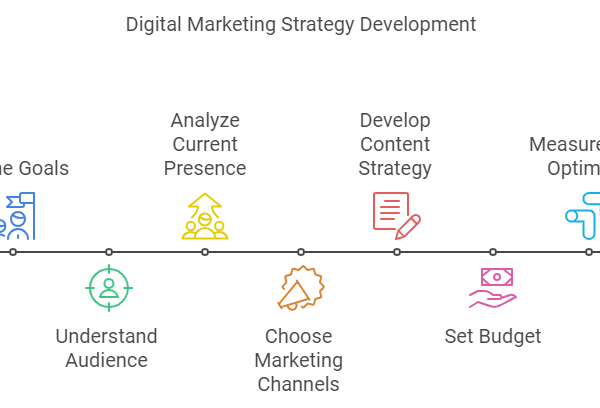
Looking for Qualitative Research Topics for High School Students? High school is a pivotal time in the lives of adolescents, marked by significant physical, emotional, and social development. Qualitative research provides a unique opportunity to amplify the voices of high school students, shedding light on their experiences, perspectives, and aspirations. In this article, we delve into a range of qualitative research topics that capture the diverse and dynamic nature of teenage life.
10 Best Qualitative Research Topics for High School Students
Here are the Qualitative Research Topics for High School Students:
- Navigating Identity Formation: Adolescence is a period of identity exploration and self-discovery. Qualitative research can explore how high school students navigate questions of identity, including issues of race, ethnicity, gender, sexuality, and cultural heritage.
- Peer Relationships and Social Dynamics: Peer relationships play a central role in the lives of adolescents. Qualitative studies can examine the dynamics of friendship groups, social hierarchies, and peer influence within high school settings.
- Academic Stress and Coping Strategies: High school students often face academic pressure, from exams to college applications. Qualitative research can investigate the ways in which students experience and manage academic stress, as well as the coping strategies they employ to navigate academic challenges.
- Family Dynamics and Support Systems: The family environment significantly impacts teenagers’ well-being and development. Qualitative studies can explore family relationships, communication patterns, and the role of parental support in high school students’ lives.
- Mental Health Awareness and Support: Mental health issues are prevalent among adolescents, yet stigma and barriers to care persist. Qualitative research can examine students’ perceptions of mental health, experiences of seeking support, and attitudes towards mental health awareness initiatives.
- Social Media Use and Digital Identity: Social media platforms play a prominent role in teenagers’ lives, shaping their self-image and social interactions. Qualitative studies can explore how high school students use social media, the impact of online interactions on their mental health, and their perceptions of digital identity.
- Bullying and Peer Victimization: Bullying remains a pervasive issue in high schools, with serious consequences for victims’ well-being. Qualitative research can examine students’ experiences of bullying, bystander interventions, and school-based anti-bullying initiatives.
- Sexuality Education and Relationship Dynamics: Adolescence is a time of sexual exploration and relationship formation. Qualitative studies can explore students’ experiences of sexuality education, attitudes towards relationships, and experiences of romantic and sexual intimacy.
- Future Aspirations and Career Planning: High school students are tasked with making important decisions about their future education and career paths. Qualitative research can investigate students’ aspirations, goals, and decision-making processes as they prepare for life after high school.
- Community Engagement and Civic Participation: Many high school students are actively engaged in their communities through volunteer work, activism, and advocacy. Qualitative research can explore students’ motivations for community engagement, experiences of social activism, and perceptions of their role as citizens and changemakers.
- Navigating Identity Formation: Adolescence is a period of identity exploration and self-discovery. Qualitative research can delve into how high school students navigate questions of identity, including issues of race, ethnicity, gender, sexuality, and cultural background. By exploring the complexities of identity formation, researchers can gain a deeper understanding of the factors that shape teenagers’ sense of self and belonging.
- Exploring Peer Relationships: Peer relationships play a central role in the lives of high school students. Qualitative studies can examine the dynamics of friendship groups, cliques, and social networks within high school settings. By exploring the intricacies of peer relationships, researchers can uncover the factors that influence teenagers’ social interactions, peer acceptance, and sense of belonging.
- Understanding Academic Pressure: High school students face significant academic pressure, from exams and assignments to college admissions and future career aspirations. Qualitative research can investigate how teenagers perceive and experience academic pressure, as well as the coping strategies they employ to manage stress and anxiety. By understanding the impact of academic pressure on students’ mental health and well-being, researchers can inform efforts to promote academic success and student resilience.
- Examining Mental Health Challenges: Adolescence is a vulnerable period for mental health issues, yet many teenagers face barriers to accessing support and resources. Qualitative studies can explore high school students’ experiences of stress, depression, anxiety, and other mental health concerns. By giving voice to teenagers’ experiences, researchers can raise awareness of mental health issues in schools and advocate for better support services for students in need.
- Exploring Family Dynamics: The family environment plays a crucial role in shaping teenagers’ experiences and development. Qualitative research can examine the dynamics of family relationships, including parent-child interactions, sibling relationships, and family communication patterns. By exploring the influence of family dynamics on teenagers’ well-being and academic achievement, researchers can identify opportunities to strengthen family support systems and promote positive parent-child relationships.
- Investigating Technology Use: In an increasingly digital world, technology plays a central role in the lives of high school students. Qualitative studies can explore teenagers’ use of technology, including social media, smartphones, and online gaming. By examining the impact of technology on teenagers’ social interactions, mental health, and academic performance, researchers can inform efforts to promote responsible technology use and digital literacy among high school students.
- Understanding Risk Behaviors: Adolescence is a time of experimentation and risk-taking behavior. Qualitative research can investigate high school students’ experiences with risky behaviors such as substance use, delinquency, and unsafe sexual practices. By exploring the factors that contribute to risky behaviors, researchers can inform prevention and intervention efforts aimed at promoting healthy decision-making and reducing the incidence of negative outcomes among teenagers.
- Exploring Career Aspirations: As high school students prepare for the transition to adulthood, they grapple with questions of career exploration and future aspirations. Qualitative research can examine teenagers’ career aspirations, educational goals, and plans for the future. By understanding the factors that shape teenagers’ career decision-making process, including parental expectations, peer influences, and socio-economic background, researchers can inform efforts to support students’ career exploration and preparation for the workforce.
Conclusion: These are the Qualitative Research Topics for High School Students. Qualitative research offers a powerful lens through which to explore the multifaceted experiences of high school students. By amplifying the voices of adolescents and delving into topics such as identity formation, peer relationships, academic stress, mental health, and community engagement, researchers can gain valuable insights that inform efforts to support and empower young people during this critical stage of development.











